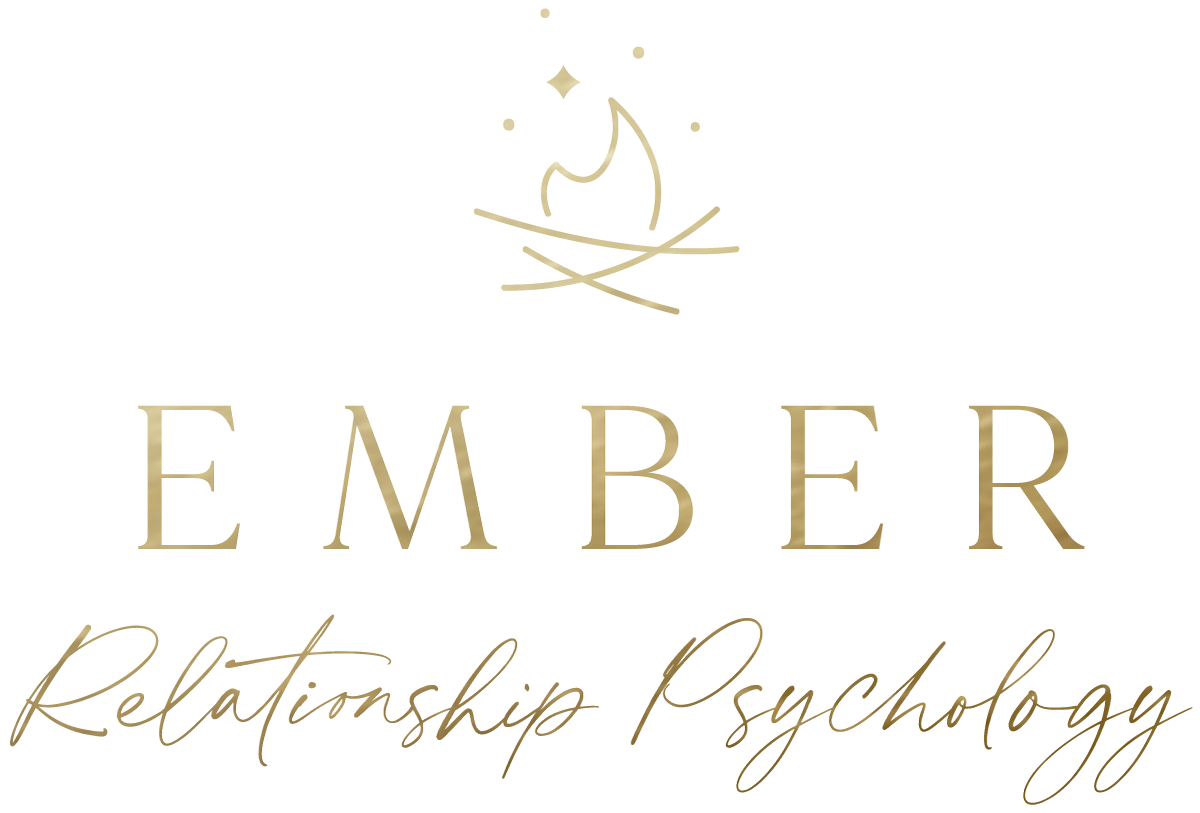2 Tools to Improve Emotional Connection in Your Relationship
by Amber Dalsin, M.Sc., C.Psych.
Couples often tell me that the silence that stretches out between them feels like an ache in their chest. Over time the ache hardens, they stop caring that they aren’t connected, instead they build a wall and shut out their emotional connection.
If you dread those lonely silences, are feeling disconnected, and want to rekindle the connection between you and your partner, here are some practical tools to help you do that:
1. Use conversation starters to help you have great connections.
When you live with someone, see them daily, you can get to know them by watching them, and making judgments about their behavior. It’s easy to run out of things to say when you see someone everyday. This is where conversations starters are a big help.
Relationship research shows that creating a mental love map of your partner’s inner world by asking questions and remembering the answers is a key component of creating and maintaining a strong foundation of friendship with your partner.
In early dating, I would google “first date questions” and memorize a few. That way I always had questions I could ask my date to engage with them.
When I suggest this, many clients roll their eyes and say things like, “That’s not organic or natural.” In early dating, asking questions and remembering the answer is more likely to be spontaneous, you are just getting to know each other. In addition, your neurochemistry rewards you, making asking questions like this more spontaneous and natural. As time wears on in a relationship, your neurobiology stops helping you out, and you might have to put in a little more effort.
Today, even though I ask people questions for a living, if you check my dining room table you will see question cards that we can ask each other over dinner to get the conversation flowing. It’s a nice way to connect, learn something new, and have a conversation that’s about more than our workdays or the weather.
2. Think about what is going right.
A mistake you might be making when you want to be more connected to your partner is focusing on what your partner is doing wrong.
It’s easy to see and focus on flaws/faults. If you are looking for disconnection, you will find it. Though similarly, if you are looking for connection, you will find it.
Connection can be made in millions of tiny moments, not just big moments. Connection could be found in a smile, the coffee your partner hands you in the morning, or them getting up with your toddler so you can get a few more minutes of shuteye. You find connection in these moments by focusing on what you appreciate and like about your partner.
If you focus on what you like, you will likely feel better and in turn show up in more loving and attentive ways to your partner.
If you focus on what you don’t like, you will likely feel upset, and act in ways that demonstrate that upset.
Now this is an oversimplification, but focusing on things you appreciate goes a long way in enhancing friendship, and emotional closeness.
Ways that you can practice are:
Keep a daily gratitude journal of something your partner did that you’re grateful for.
Do the 7 Weeks to Fondness and Admiration exercises from John Gottman and Nan Silver’s book The Seven Principles for Making Marriage Work.
Share fond memories from your past with each other.
Think about your early dating, why you liked each other, and share them.
Almost all my clients love this part of therapy because it helps remind them of why they are together.
Try it for yourself, see what happens.
It’s difficult to start and keep a fire going without fuel and a spark. In your relationship you need a spark of willingness to take action, and the fuel is both partners engaging repeatedly in actions/beliefs that will fuel the relationship. Connection isn’t a one-and-done process. It needs to be consistently worked on over the course of the relationship to keep the connection alive.
This blog is not meant to be a substitute for couples therapy or relationship counselling. This should not be construed as specific advice. See a relationship therapist in your area to address your specific problems.

